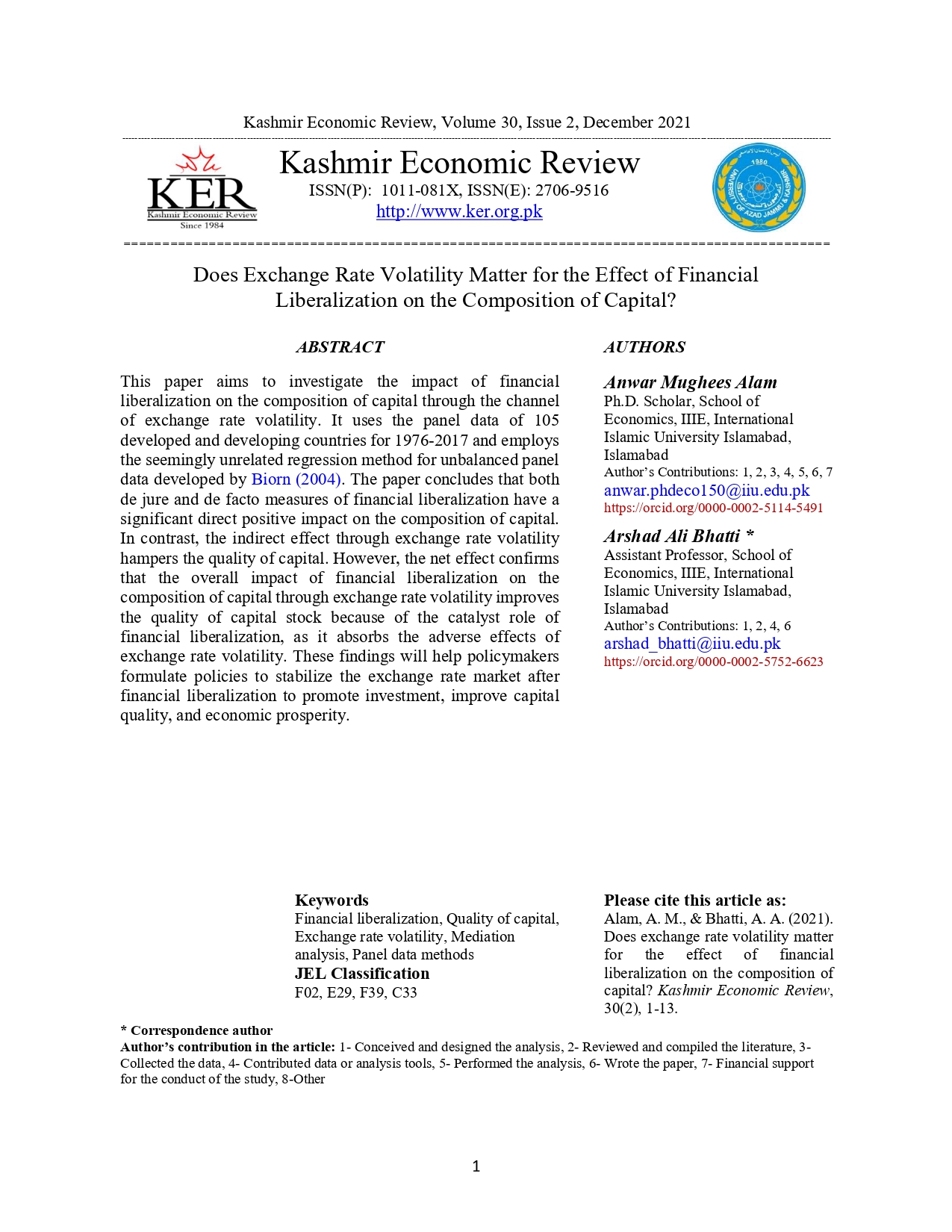Does Exchange Rate Volatility Matter for the Effect of Financial Liberalization on the Composition of Capital?
Main Article Content
Abstract
This paper aims to investigate the impact of financial
liberalization on the composition of capital through the channel
of exchange rate volatility. It uses the panel data of 105
developed and developing countries for 1976-2017 and employs
the seemingly unrelated regression method for unbalanced panel
data developed by Biorn (2004). The paper concludes that both
de jure and de facto measures of financial liberalization have a
significant direct positive impact on the composition of capital.
In contrast, the indirect effect through exchange rate volatility
hampers the quality of capital. However, the net effect confirms
that the overall impact of financial liberalization on the
composition of capital through exchange rate volatility improves
the quality of capital stock because of the catalyst role of
financial liberalization, as it absorbs the adverse effects of
exchange rate volatility. These findings will help policymakers
formulate policies to stabilize the exchange rate market after
financial liberalization to promote investment, improve capital
quality, and economic prosperity.
Article Details

This work is licensed under a Creative Commons Attribution-ShareAlike 4.0 International License.

